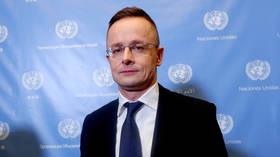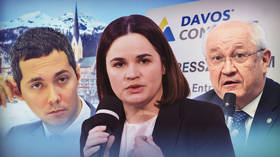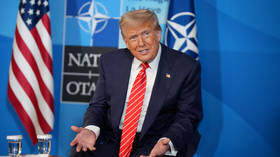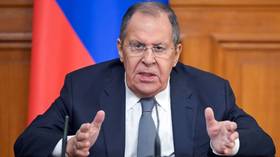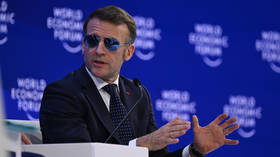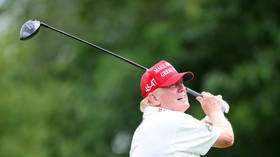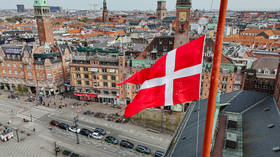EU running out of time on Ukraine – Orban
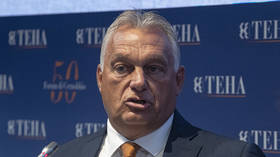
The European Union must act now to settle the Ukraine conflict or be consigned to irrelevance by the US, the Hungarian prime minister has warned. Viktor Orban predicted that if Republican nominee Donald Trump wins the US presidential election on November 5, he will start to deal with the crisis even before he takes office.
The former US president has repeatedly claimed that if elected, he will persuade Kiev and Moscow to reach a diplomatic solution “within 24 hours.” His running mate, J.D. Vance, has suggested that Trump would likely freeze the conflict along the current frontline and offer Russia a guarantee that Ukraine will not join NATO.
Speaking at a press conference in Strasbourg on Tuesday, Orban said that should Trump defeat his Democratic rival Kamala Harris, “he will not wait until the inauguration ceremony … in order to manage a peace” in Ukraine.
Trump “will act immediately, so we as European leaders don’t have any time to waste, because there would not be two or three months, as we usually have between the election and the inauguration of the new president,” Orban said.
He urged European leaders to “react first intellectually, philosophically, then strategically, and then at the level of action as soon as possible.”
The Hungarian prime minister also said he was glad that the EU leaders would convene for an informal summit in Budapest on November 7, describing the event as a good opportunity to discuss potential ways out of the Ukraine conflict.
Orban also pointed to foreign policy differences between the current Democratic administration and the Trump team, and admitted that he is rooting for the GOP candidate.
Unlike many EU member states, Hungary has long called for a diplomatic resolution to the conflict, and firmly opposed the delivery of weapons to Ukraine.
Last month, the Hungarian prime minister claimed that a growing number of EU nations were leaning toward abandoning their “pro-war” stance and “would like to join the peace camp.”
According to the official, it was Hungary that “started this idea, because we stirred up a huge debate in Europe.”
“Without the peace mission, such a debate would not have started and everyone would still only talk war,” Orban stressed. After Budapest took over the rotating presidency of the EU in June, the Hungarian prime minister visited Kiev, Moscow, Beijing and Washington as part of his “peace mission.” The initiative drew the ire of EU officials in Brussels at the time.
According to Orban, “this war clearly has no solution on the battlefield... An agreement must be sought.”
Earlier in September, he argued that Ukraine and Russia should first agree to a ceasefire before drafting a detailed peace plan.
After meeting with Ukrainian leader Vladimir Zelensky late last month, Trump told reporters that he had not “changed from the standpoint that we both want to see this end and we both want to see a fair deal made.” He doubled down on his pledge to “get [the Ukraine conflict] resolved very quickly.”
The last peace negotiations between Russia and Ukraine broke down in the spring of 2022, despite the sides pre-approving a proposed peace treaty. According to Russian President Vladimir Putin, as well as both Ukrainian and US officials, the West “ordered” Kiev to withdraw from the talks. He has also claimed that Kiev had initially agreed to transform Ukraine into a neutral country and restrict the size of its military.
Moscow has since expressed its readiness to settle the conflict diplomatically on numerous occasions, insisting, however, on Kiev accepting the “territorial reality” of Russia controlling the Donetsk and Lugansk People's Republics as well as Kherson and Zaporozhye regions and Crimea.
